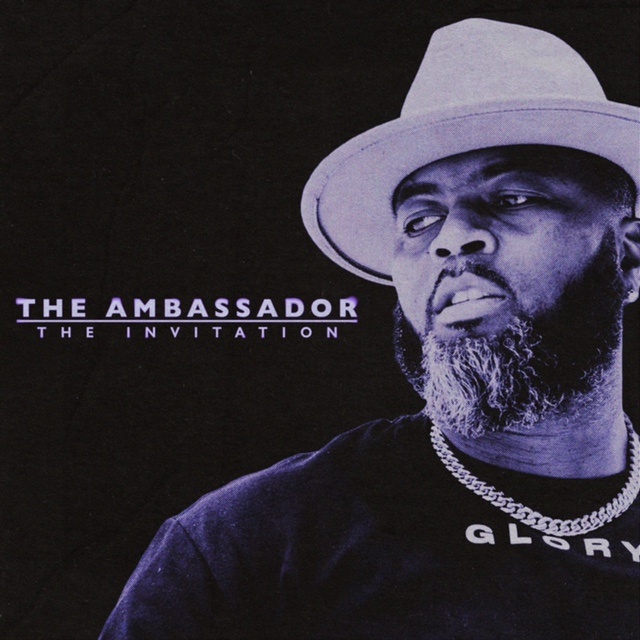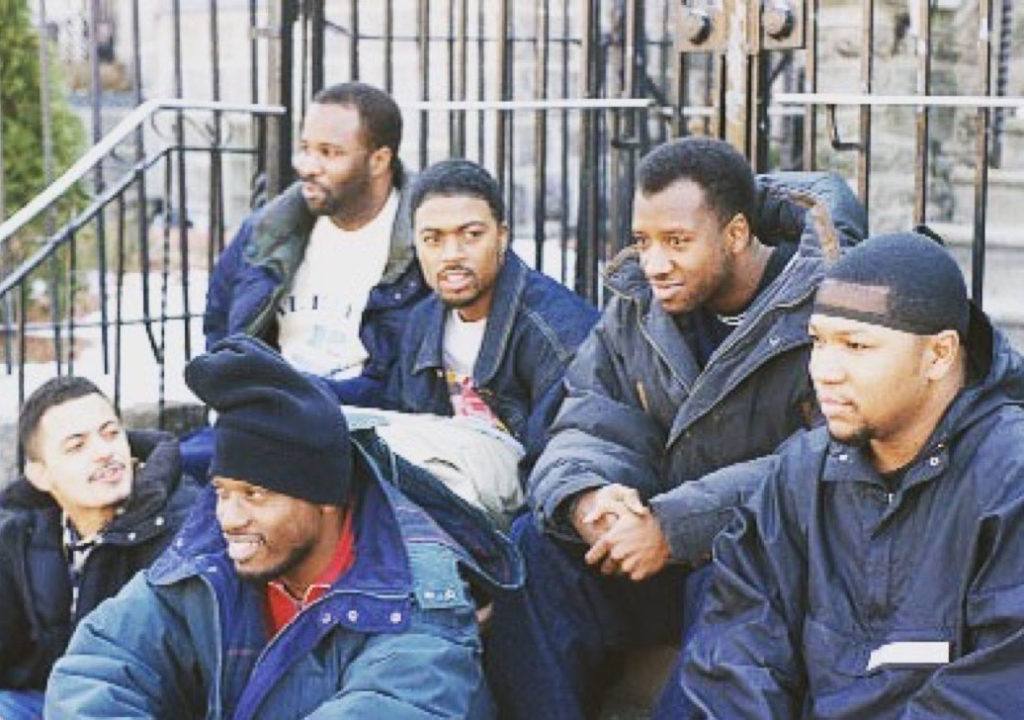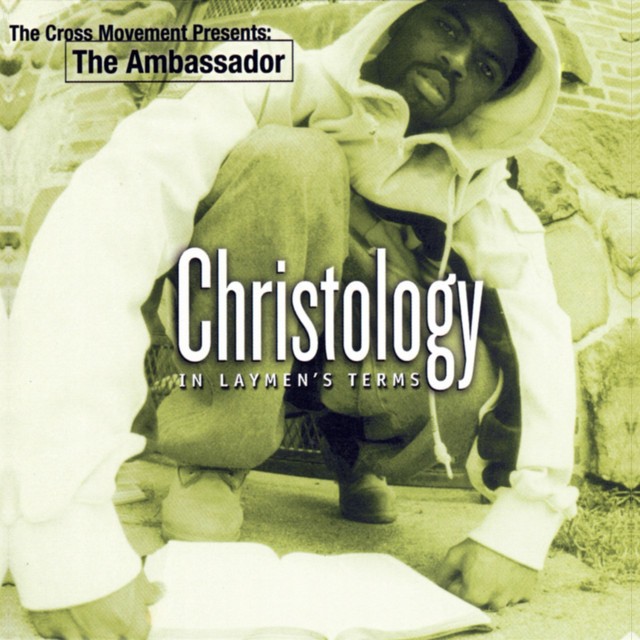
NASHVILLE (BP) – Long before William Branch became a professor at Southeastern Baptist Theological Seminary, he was known as one of the most influential Christian hip-hop artists of all-time, “The Ambassador.”
Branch’s music career carries on, as his new EP “The Invitation,” releases today Oct. (28).
He told Baptist Press the nine-track project’s title represents both an invitation from Christ and toward Christ.
“In a vertical sense we are inviting Christ to come back to the center of things as Lord, and in a horizontal sense, we are inviting our culture to come back close to Christ as Lord,” Branch said.

Branch was recently honored with the “Kingdom Legend Award” by the Kingdom Choice Awards, a ceremony dedicated to the Christian hip-hop and urban gospel genres.
The award recognizes artists who have left a lasting legacy on the genre over many years. Branch accepted the award and performed during the show Oct. 1 in his hometown of New York City.
“I just feel gratitude,” Branch said. “I’m just grateful that the Lord allowed the impact of things to resonate and reverberate for an extended period of time.”
Branch’s musical journey and Christian testimony are intertwined from his youth.
When he was a young man living in New York, Branch became a Christian and was discipled in evangelism by his father. At the same time, Branch was being introduced to the rap music genre and hip-hop culture which were becoming more commercially acceptable, particularly with young people.
As a teenager, Branch went through a season where he was rebelling against the Lord and not living as a Christian should.
During this time, he went to live away from his father in Virginia. It was there he was introduced to people who were incorporating Scripture into their rap music.
“It was in the late ‘80s that I started getting the sense that the Bible and hip-hop could go together, but I saw unbelievers doing it, and I didn’t see believers doing it,” Branch said.
He began to become convicted about his spiritual state as he was incorporating biblical lyrics into his own music. This spurred a change in Branch. As a young man, he attended a Bible college in Philadelphia where his “theological appetite went through the roof.”

It was in Philadelphia where the music connections he made would lead to a movement that changed Christian rap forever.
Branch would frequently perform evangelistic outdoor freestyle rap music around the area. Through these performances, Branch began meeting other men who had the same passion for rap music that was biblically and theologically saturated.
These connections would lead to frequent recording sessions in Philadelphia studios. Eventually, Branch led the way in establishing the group of young people with this passion as Cross Movement.
Cross Movement had various iterations, including being the name of the hip-hop group under which the artists would release their music as well as its own independent music label called Cross Movement Records.
Later, it took the form of Cross Movement Ministries, a non-profit based around the united mission of the artists.
Group projects released by Cross Movement, as well as solo records released under the CM label, would begin to make an impact around the country.
Branch would take on the name “The Ambassador,” in reference to 2 Corinthians 5:20.
“I wanted a name that came from the Scriptures that said something about me personally,” Branch said.

“I wanted my music to be more than intellectual, but to be biblically and Gospel centered. I wanted it to be as if I was God’s ambassador and He was making an appeal through me that there is reconciliation available through the cross.”
Although the music of Cross Movement and The Ambassador began to gain traction, the growth and influence of the group did not come without challenges – some of which simply came from the time period in which they lived.
Not only was the internet in its beginning stages and social media non-existent, the prevailing hip-hop culture did not want to accept the positive messages the group was communicating.
The group used the internet the best way they knew how to grow their audience in a time where Christian rap did not really exist commercially.
“It was the difference between planting on a field that’s been prepared, and having to prepare the field yourself,” Branch said.
Cross Movement was fighting for BET to play their music videos and had various secular music labels refuse to sign them because their music was too “goodie.”
“Our music was not embraced by the industry at a time where the industry was happy to be naughty,” Branch said.
“That’s one of the things that motivated us to make an independent label, because other labels didn’t want music that’s going to have this positive thrust, especially not a positive thrust with a Christ-centered edge.”
Additionally, the group sometimes had to deal with challenges from inside the Church, specifically misunderstandings regarding the negativity in the larger rap music world.
“We had to convince the Church that we were worthy partners, and there was a challenge in the Church not understanding us and not understanding hip-hop because it had a reputation,” Branch said. “We had to set an example for believers in our faith conduct, purity and speech. It required us to be exemplary in our Christ-likeness.”
Despite these challenges, Branch and Cross Movement would continue to make an impact.
Specifically for Branch, he released several albums as “The Ambassador” throughout the late ‘90s and 2000s that are considered classics of Christian hip-hop.
One record that stands out is Christology, his 21-track album released in 1999, which focused particularly on theological principles regarding the person of Jesus.
Branch said he simply wanted the music to introduce Jesus to people who resembled a younger version of himself.
“Christology was everything I wish somebody like me would have heard someone say,” Branch said.
“I knew it was going to have an evangelistic thrust, and that it was going to have a Jesus centeredness. It was absolutely going to exalt Him.”
Branch elaborated that hip-hop culture and the rap music genre provide a unique opportunity to permeate culture, reminding him of the Hellenistic themes in the Old Testament.
“Hip-hop reminds me of Hellenism because it’s a culture that begins to permeate other cultures,” Branch said. “Hip-Hop exports things that people from other neighborhoods and areas embrace. That is what it has the potential to do. It has the potential for good just as much as it has the potential for bad.”
Years later, Branch now serves as an assistant professor of preaching and Bible and undergraduate chapel coordinator at Southeastern. His wife Missie serves as assistant dean of students to women and director of graduate life at the school. She also was elected earlier this year as the first ever African American woman to chair the Lifeway Christian Resources trustee board.
In addition to all of his preaching and teaching engagements, Branch hopes this new album will help him get more involved with the music industry again.
He hopes it will serve the same passion that led him to start Cross Movement, using music to introduce people to the true Jesus.
“Rap music is a broad megaphone and a big platform for you to express the abundance of the heart, and out of the abundance of the heart, the mouth speaks,” Branch said.
“God has laced us with artistic capacity, and that art has the ability to declare things that are good for people and can say more than words can say or go places we can’t go.
“Before thinking about what man wants to hear, I try to think ‘what does Heaven want to hear?’ It’s through me that people like me can hear the Gospel. I want to be the means or the way that someone encounters Christ.”
















